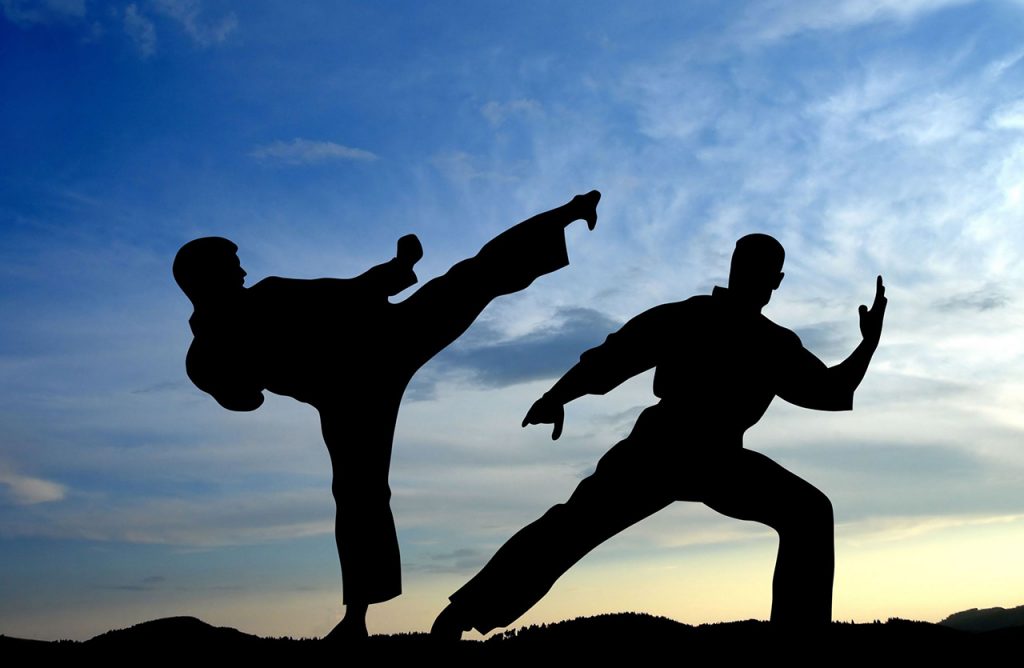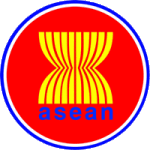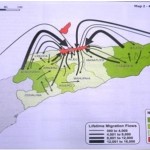
(Internet Photo)
All Souls’ Day (November 2nd) is a very important day in Timor-Leste, when people across the country remember those who have passed away. Yet this year the sanctity of this time was disfigured by numerous incidents of youth violence linked to Martial Arts Groups (MAGs). This deplorable and needless bloodshed testifies to the failure of the government’s previous attempts to address the MAG problem. Although the government banned three prominent MAGs (Kera Sakti, PSHT, and KORK) in 2013, martial arts activity continues unabated. Fundasaun Mahein (FM) recommends that the government legalize and regulate these groups in order to control them.
Incidents of violence ranged across Timor-Leste’s territory during the holiday period. One person died in Balibo, Maliana, during fighting between MAGs on November 2nd. On November 3rd, young men beat up a Catholic priest in Zumalai, Cova Lima district. In Lautem district, a young girl was wounded by a rama ambon (a deadly weapon similar to a bow-and-arrow) on November 5th. In Gariuai, Baucau, young men suspected of belonging to the Kera Sakti and PSHT groups fought on All Souls’ Day. One man stabbed his own nephew with a spear. Luckily, this youth survived what could easily have been a fatal injury. While this holiday time featured particularly intense fighting, similar MAG-related violence has been happening in rural villages for years now, generating a state of perpetual panic.
On the evening of November 8th, the National Police of Timor-Leste (PNTL) arrested 139 members of the MAG known as “7-7” during a gang ceremony in the Taibessi area of Dili. While this incident represents a triumph for law enforcement, it also marks the first time that the PNTL has arrested a large group of gang members since the 2013 ban. The failure of the security forces to effectively stop martial arts activities over the past four years raises serious questions about their willingness to confront these groups. Suspicions have long circulated in Timor-Leste that many members of the police and military are actually involved in martial arts themselves. The likelihood that these groups have infiltrated the security forces partly explains why outlawing them has proved so ineffective.
Although police and military commanders issue intimidating statements whenever gang violence occurs, MAGs nevertheless continue operating with impunity. Every year their members illegally cross the border into Indonesia to take tests evaluating their proficiency in martial arts. The presence of these groups has taken a terrible toll on Timor-Leste, above all in the senseless loss of young life during their clashes. MAG violence also destroys houses, vehicles, and public assets, creating a climate of pervasive fear.
Furthermore, these groups generate bitter divisions in Timorese society. Even those who are relatives can become enemies if they join rival gangs. The violence between family members in Gariuai, Baucau, exemplifies these organizations’ destructive impact on the most fundamental social relationships. Given the seriousness of this threat, it is imperative that the Timorese government develops a more effective response.
FM therefore recommends that the government allow these groups to become legal again, but on the condition that they register with the Ministry of Justice. The Ministry will then grant each group a certificate allowing it to operate legally. The MAGs will also have to undergo a registration process in order to open branches in new areas. Furthermore, the Ministry of Justice will require all MAG members to register with numbered ID cards. The cards’ numbers will then be entered into a database. This process will make the groups more centralized and therefore less unpredictable. The government can then control them through their leaders. Ultimately, incorporating these organizations into a regulatory framework will allow the government to identify MAG leaders and members, and to hold them accountable for their actions.
Once the MAGs have been legalized, the government should hold martial arts competitions, giving young men a constructive outlet for their aggressive energies. These events can become an attraction for domestic and international tourism, helping Timor-Leste brand itself as an appealing destination. The competitions would also require participants to have ID cards, giving MAGs an incentive to comply with the government registration rules.
Some people are understandably reluctant to officially recognize groups that have inflicted such deep wounds on Timorese society. However, banning these organizations has only made them harder to control. FM believes that regulated legalization represents the most promising method for controlling these groups and making them useful to the nation.






